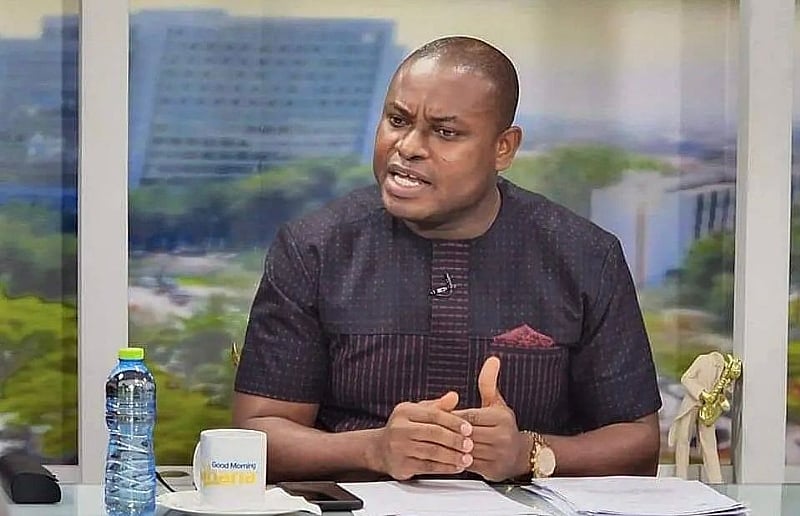The New Patriotic Party (NPP) has launched a scathing attack on the National Democratic Congress’s (NDC) “Operation Recover All Loot” (ORAL) initiative, labeling it an illegitimate and legally dubious undertaking designed to promote the NDC’s populist agenda at the expense of established anti-corruption institutions. Richard Ahiagbah, the NPP’s National Communications Director, argues that ORAL, in its current form, lacks legal standing and operates outside the bounds of the 1992 Constitution. He contends that by establishing this extralegal body, the NDC undermines the authority and effectiveness of existing anti-corruption agencies, including the Criminal Investigations Department (CID), the Office of the Special Prosecutor (OSP), the Economic and Organized Crime Office (EOCO), and the Commission on Human Rights and Administrative Justice (CHRAJ). Ahiagbah’s critique casts ORAL as a politically motivated maneuver rather than a genuine attempt to combat corruption.
The NPP’s criticism goes beyond questioning ORAL’s legality; it also challenges the NDC’s procedural approach. Ahiagbah argues that if the NDC intends to empower ORAL with investigatory and prosecutorial powers, it must follow proper legislative channels. He calls on the NDC to seek parliamentary approval for the committee’s operations, emphasizing that operating outside the established legal framework sets a dangerous precedent and undermines the rule of law. This call for legislative legitimacy underscores the NPP’s assertion that ORAL, as currently constituted, is an unauthorized body operating outside the accepted norms of governance. The NPP argues that bypassing Parliament undermines democratic processes and reinforces the perception of ORAL as a politically driven initiative.
The NPP’s stance aligns with the Minority caucus in Parliament, which has urged Ghanaians, particularly former officials of the Akufo-Addo-Bawumia administration, to boycott ORAL’s proceedings. This boycott, according to the NPP, is not an attempt to evade accountability but rather a principled stand against an illegitimate process. The party insists that holding individuals accountable for alleged corruption should be the purview of legally constituted institutions with the appropriate mandate and procedural safeguards. By encouraging a boycott, the NPP aims to delegitimize ORAL’s authority and highlight its perceived disregard for established legal processes.
The NDC, on the other hand, presents ORAL as a crucial tool in its fight against corruption, aiming to recover misappropriated state resources and hold corrupt officials accountable. Led by Samuel Okudzeto Ablakwa and comprising prominent figures like former Auditor-General Daniel Domelevo, retired Police Commissioner COP Nathaniel Kofi Boakye, private legal practitioner Martin Kpebu, and investigative journalist Raymond Archer, ORAL has established multiple platforms for citizens to report suspected corruption. These platforms, including a toll-free number, an official website, and an email address, are designed to encourage public participation and ensure confidentiality for informants. The NDC argues that ORAL’s establishment is a necessary step to address the pervasive issue of corruption and ensure that stolen public funds are recovered.
The divergent views on ORAL represent a larger debate about the appropriate mechanisms for addressing corruption within Ghana’s political landscape. The NPP’s focus on legality and established procedures contrasts with the NDC’s emphasis on proactive measures to recover misappropriated funds. The NDC argues that existing institutions have been ineffective in curbing corruption and that a more aggressive approach, like ORAL, is necessary. This difference in approach reflects the ongoing political tension between the two parties and highlights the challenges of combating corruption in a highly politicized environment.
Ultimately, the effectiveness and legitimacy of ORAL will depend on its adherence to legal processes and its ability to demonstrate tangible results in recovering misappropriated funds. The public perception of ORAL will also be influenced by the ongoing political debate between the NPP and the NDC. Whether ORAL becomes a valuable tool in the fight against corruption or remains a point of political contention remains to be seen. The ongoing controversy underscores the need for a robust and transparent framework for addressing corruption in Ghana, one that respects legal procedures while effectively holding corrupt officials accountable.














